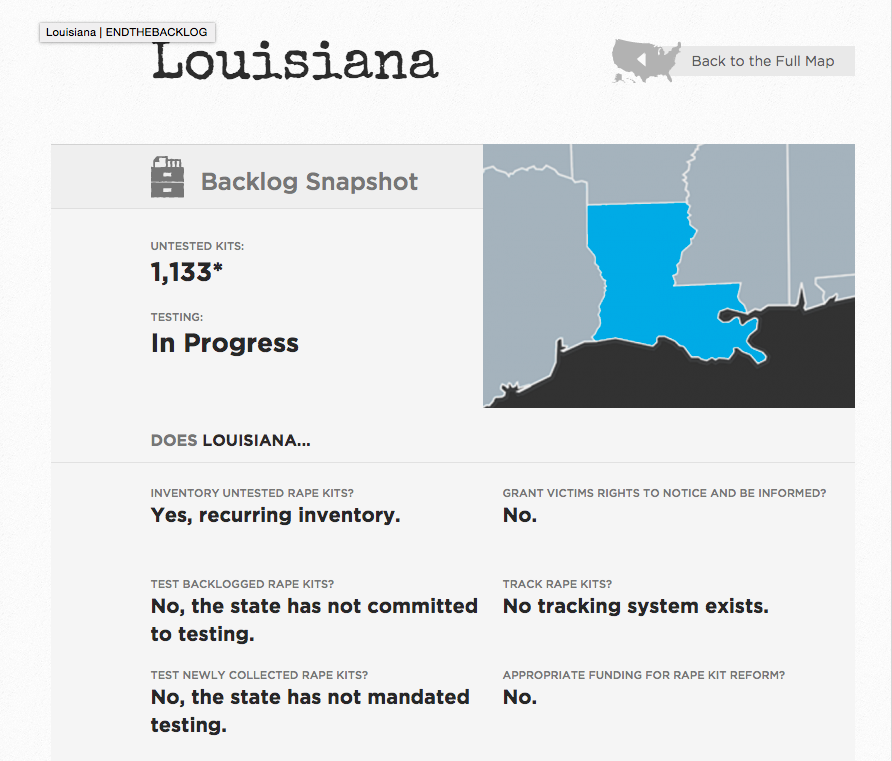As TV shows like “Law & Order: Special Victims Unit” have aired episodes addressing the extensive backlogging of untested rape kits, America has gotten a glimpse into the extent and severity of the growing issue.
Survivors of sexual assaults often go to the hospital to have a rape kit done only to be poked and swabbed from head to toe on an examination table for nearly four hours. This is an important part of the criminal investigation.
In 2015 Louisiana was found to have 1,113 untested rape kits in backlogs, some of which had been in storage since the ‘80s.
One of the reasons for the backlog is a shortage of examiners and forensic analysts across the country. To combat this issue, the U.S. Department of Health and Human Services actually provided LSU with a $1.3 million grant in 2018 to train over a hundred nurses to conduct forensic exams.
Another reason is the lack of funding and resources available. Still, Louisiana’s expenditures stated in the 2019-2020 budget proposal accounted for $9,740,000,000—so, out of all of those billions of dollars, why is the government not using more to test rape kits?
Louisiana needs to practice more “moral spending”; for example, using some of the state’s funds designated for Prison Enterprise—an agency that supervises the corrupt practice of prison labor—to help clear the state’s backlog of untested rape kits instead.
The backlog of kits is not just a problem in Louisiana; it is an epidemic within America’s infrastructure. Throughout police storage spaces in America, there are nearly two hundred thousand rape kits waiting to be tested. Testing these kits will cost $1,000-$1,500 each.
The Violence Against Women Act was enacted to eliminate the cost of survivors’ forensic exams. Although there are laws in place to cover the costs, survivors in some states have to pay for the extra services in these exams.
As one writer for the International Business Times put it, “Rape kits are provided free of charge under the Violence Against Women Act…pregnancy tests, STI tests, emergency contraception, post-exposure prophylaxis for HIV and treatment for injuries—are not always included, and definitely not in Louisiana.”
It is wrong for survivors to be paying for this help when kits are often thrown in storage spaces for years. What is the point of putting a survivor through the trauma of examination if labs aren’t even going to test the kits?
Survivors should not have to wait years for answers that could possibly be in rape kits. There is no reason that there should be a backlog of rape kits in this day and age. Testing helps remove dangerous predators off the streets; these tools have been proven to convict serial rapists and killers.
There are women out there who have been brutally attacked or killed because their government failed to do its job. Their lives could have been saved. Louisiana legislators needs to create the state’s 2021 budget with the backlogging epidemic in mind and finally prioritize justice for these women.
Tamia Southall is a 19-year-old mass communication sophomore from New Orleans.








